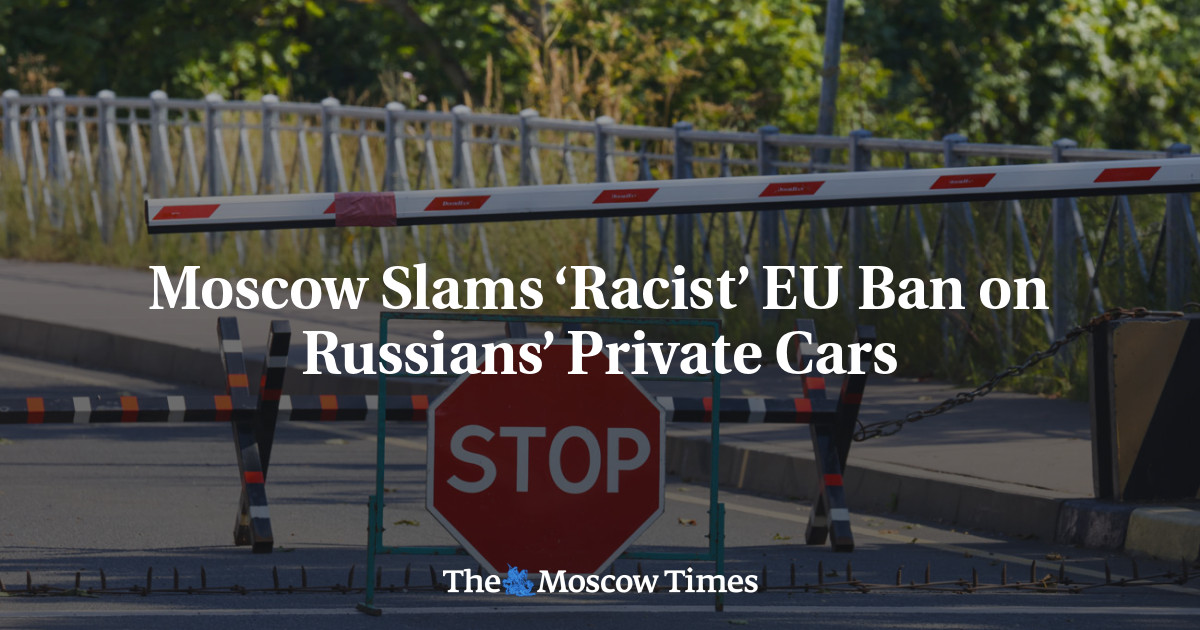The Foreign Ministry of Moscow has strongly condemned the European Union’s decision to ban Russian citizens from bringing their private vehicles and other belongings across EU borders, labeling it as a “racist” action.
In an explanatory note dated September 8, the European Commission stated that the regulation “prohibits the purchase, import, or transfer, directly or indirectly, of goods…if they originate in Russia or are exported from Russia.”
These goods include a wide range of items, from cars, smartphones, and laptops to essential everyday products such as toothpaste and toilet paper.
“This is not a policy of sanctions, this is not a question of creating some additional benefits for the sinking economy of the European Union. This is racism as it is,” said Maria Zakharova, the spokesperson for the Russian Foreign Ministry, as quoted by the state-run TASS news agency on Monday.
The former Russian President, Dmitry Medvedev, has suggested that Moscow should “temporarily suspend diplomatic relations with the EU,” implying that the EU has communicated to all Russians that they are regarded as second-class citizens.
Last week, the RBC news website reported that the banned items list includes personal belongings like smartphones, jewelry, and laptops.
Regarding the implementation of these rules, a spokesperson for the European Commission mentioned that clothes worn by individuals crossing a border are unlikely to be considered a violation of sanctions.
“That is a different situation compared to an expensive car,” the spokesperson stated, as reported by Reuters.
In a comment to The Bell news website on Monday, European Commission spokesman Daniel Sheridan Ferrie stated that “EU member states are required to comply with European sanctions.” He added that while clothes would not face sanctions, cars and other valuable goods would be subject to them.
Earlier this summer, German customs authorities announced that they could seize the private cars of Russians entering the country. According to Deutsche Welle, at least 10 vehicles were confiscated in Germany in July.
Some Russian lawyers argue that confiscating personal belongings is unlawful.
“The fact that a Russian citizen is on the territory of another state, assuming they have traveled there with legal documents, does not constitute a crime,” stated Vladimir Starinsky, the chairman of the Starinsky & Partners bar association.
Some individuals also expressed concern that these restrictions could adversely affect Russian opposition activists and figures who have had to leave Russia due to an intensified crackdown on dissent since the beginning of the war with Ukraine.
“Is this policy aimed at further limiting Russian citizens from visiting EU countries, including those who are fleeing from the Putin regime and the threat of war?” questioned Boris Bondarev, a former member of Russia’s delegation to the United Nations in Geneva, who resigned in protest of the war, on X (formerly Twitter).
The Bell contributed reporting.














